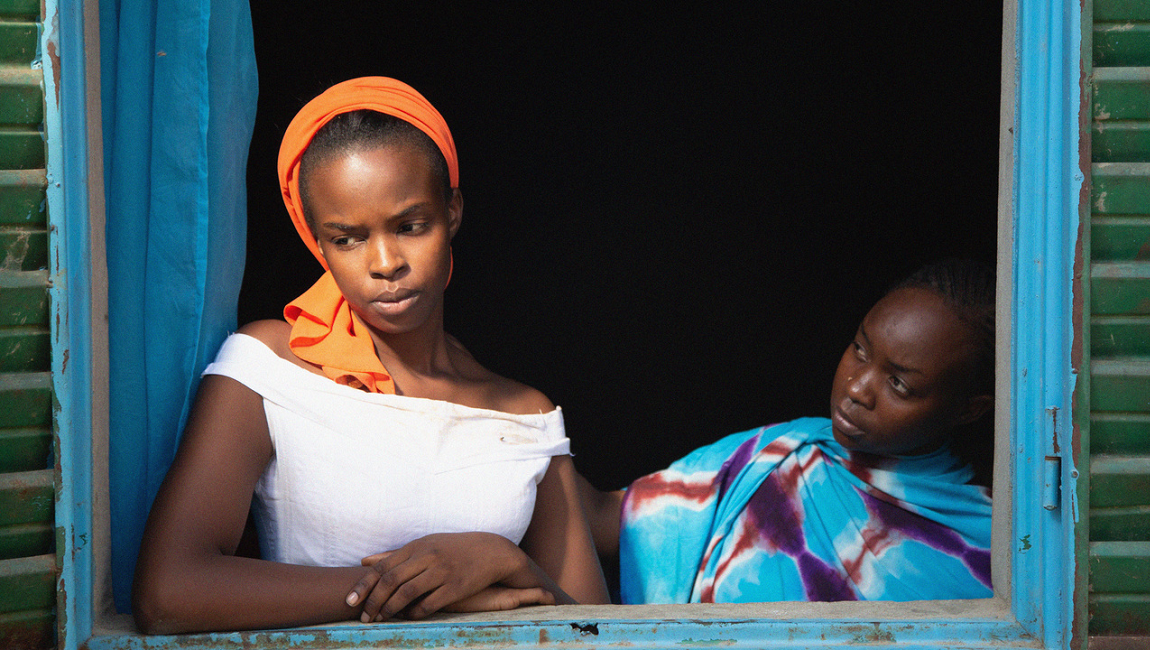Lingui is a middlebrow arthouse trifle that offends in its simplicity and deference to narrative convenience.
Lingui, The Sacred Bonds, the latest from Chadian director Mahamat-Saleh Haroun, is the type of middlebrow arthouse trifle that’s practically tailored-made for the European festival circuit (this film somehow reflects Haroun’s third Cannes’ Competition title, natch), one that practically brims with Big Issues and Important Themes — with fairly little to say about any of them beyond stating said significance — and features lots of static long takes that occasionally mutate into slow, contemplative pans (there’s a few okay compositions). But considering what else it was up against for the Palme last year, you could do much worse in terms of comparison: Lingui isn’t as dire as say the Best Actor-winning Nitram or even as incompetently assembled as Sean Penn’s Flag Day (only his second biggest disaster at the Croisette). Yet, it’s as equally unambitious and unimaginative as those two, nobler with its intentions, but also largely monotonous and formally anonymous in how it sets out to achieve these lofty goals. Which are, to be fair, honorable, and often deeply humane; but that’s about all there is to Haroun’s interest in explication of this governing narrative drama, which makes for a social commentary that features little to no actual penetrative analysis beyond blanket statements about communal sisterhood in the face of patriarchal oppression.
Just take the basic premise, where the titular “sacred bonds” — forged between a single mother, Amina (Achouackh Abakar Souleymane), and her pregnant 15-year-old daughter Maria (Rihane Khalil Alio), both attempting to find a doctor who will perform an illegal abortion on the teenager — are pushed less by human instinct and more by dramatic convenience. Everything one could expect from from the setup to happen happens (there’s one notable curveball toward the tail-end, though the revelation feels like an afterthought). You’re anticipating struggle and strife as these women are mistreated and borderline abused? Well, no shit. The first doctor they go to will obviously turn them down without a second thought, serving as a stark reminder to audience members why this is indeed a pressing topic worthy of their time and attention; the local religious leader’s expected vitriolic response (he refuses to shake Amina’s hand in one scene), another didactic stand-in for blatant cultural misogyny, continues to sand down any dramatic complexity from the circumstances. Still, things never even get that dire, only mildly unpleasant, as if Haroun is scared of rupturing his wannabe prestige aesthetic; considering the real-life stakes that are being dealt with here, this is simply unacceptable. But perhaps the bigger failing of this slice of social realism is its lack of commitment to any sort of meaningful follow-through on these moments, which wouldn’t have made them any less rote, but at least provided some sense of authenticity. The film, instead, chooses to neatly resolve its conflicts in ways that feel completely detached from reality: if anything, Lingui seems to suggest that, while the abortion itself was a pain, the trials and tribulations were at least able to bring two estranged souls closer together. It wasn’t about the journey, but the destination. That Haroun has seemingly convinced himself that this is a noble message all but confirms his substandard hackary.
You can currently stream Mahamat-Saleh Haroun’s Lingui, the Sacred Bonds on Mubi.







